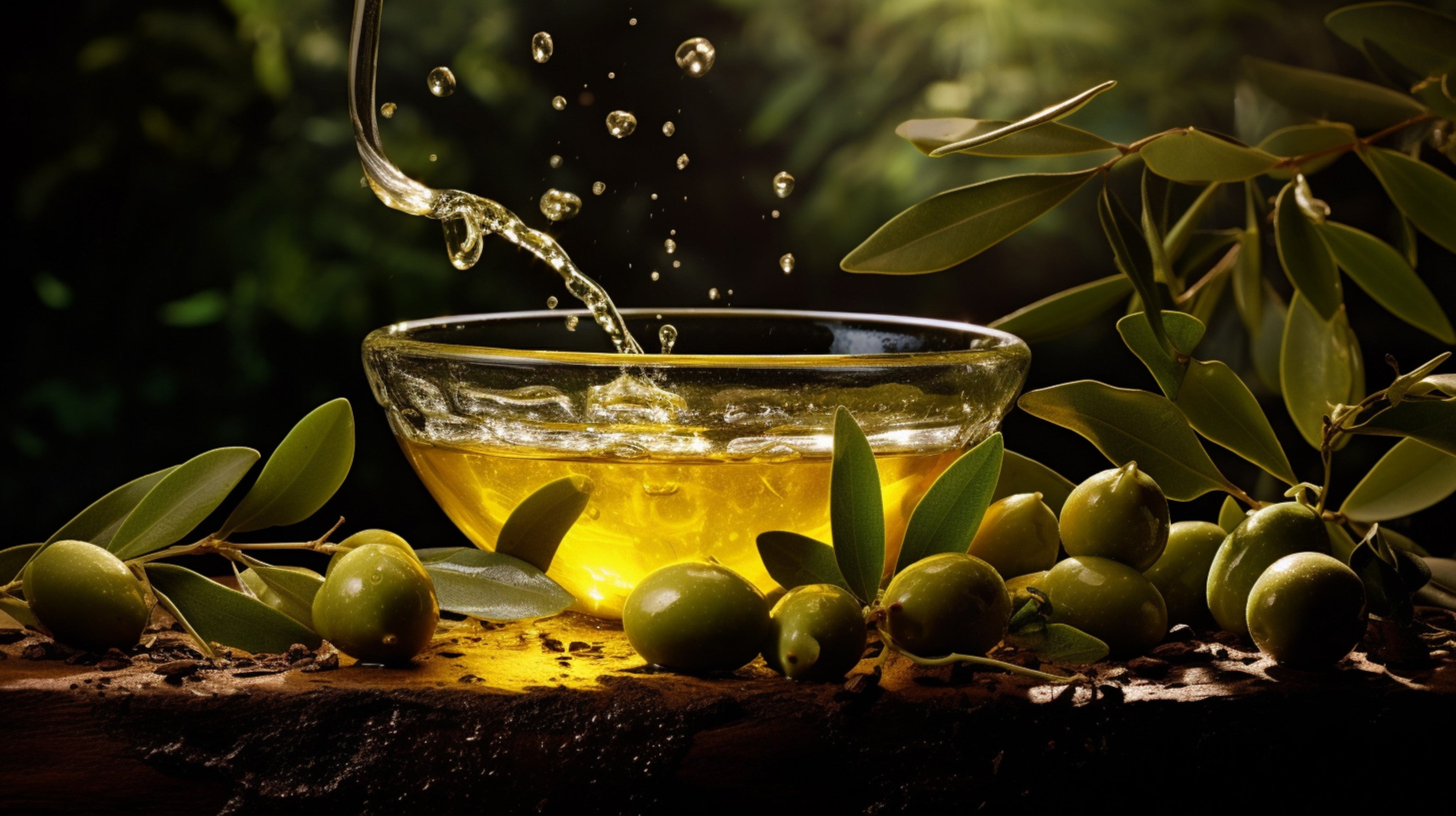
Top 5 Reasons to Choose High-Polyphenol Extra Virgin Olive Oil
If you’ve ever tasted a robust, peppery olive oil that made the back of your throat tingle—you’ve likely experienced high-polyphenol extra virgin olive oil. That sharp, bold bite is the unmistakable signature of powerful, naturally occurring compounds known as polyphenols.
But that peppery note is more than a flavor—it’s a signal of superior quality and wellness benefits backed by scientific research.
As awareness grows, more consumers, health professionals, and longevity experts are turning to high-phenolic olive oils as a functional superfood. Whether you're here for the flavor, the science, or both—this guide will show you why high-ppm olive oil deserves a place in your daily routine.
1. Exceptional Antioxidant Power
Polyphenols are potent plant-based antioxidants that help protect cells from oxidative stress. This stress, caused by free radicals, is one of the leading contributors to aging and chronic disease—including cardiovascular disease, cancer, and neurodegenerative conditions.
In olive oil, the key polyphenols include:
-
Hydroxytyrosol – one of the most powerful dietary antioxidants ever studied
-
Oleuropein – linked to metabolic and anti-inflammatory benefits
-
Tyrosol and Oleocanthal – protective for brain and cardiovascular health
These compounds help reduce cellular damage by neutralizing free radicals, and research suggests that they may contribute to slower biological aging.
According to the European Food Safety Authority (EFSA), olive oils with at least 5 mg of hydroxytyrosol per 20g can claim antioxidant health benefits [1]. High-phenolic olive oils far exceed this threshold, offering measurable support to overall health.
2. Scientifically Backed Anti-Inflammatory Properties
Chronic inflammation is increasingly understood as a root cause of many health conditions—from heart disease and arthritis to neurodegeneration. Polyphenols in extra virgin olive oil, particularly oleocanthal, have demonstrated natural anti-inflammatory properties in numerous studies.
A 2005 paper published in Nature showed that oleocanthal acts similarly to ibuprofen, targeting the same COX-1 and COX-2 inflammatory enzymes [2].
What does that mean for you?
-
Natural, low-impact inflammation control
-
Support for joint health, muscle recovery, and immune modulation
-
Daily protection against the inflammatory effects of poor diet, stress, and pollutants
This makes high-phenolic olive oil especially valuable for those pursuing preventive wellness or managing chronic inflammation naturally.
3. Enhanced Cardiovascular Protection
The Mediterranean diet isn’t a trend—it’s one of the most studied and respected dietary models in the world. A cornerstone of this lifestyle is high-quality olive oil, and the polyphenol content is a major reason why.
In the landmark PREDIMED study, a randomized clinical trial involving over 7,000 participants, a Mediterranean diet supplemented with high-polyphenol EVOO led to a 30% reduction in major cardiovascular events—including heart attack and stroke—compared to a low-fat diet [3].
Key takeaways:
-
High-phenolic olive oil supports healthy cholesterol by preventing LDL oxidation
-
May improve endothelial function and blood pressure
-
Offers protective compounds for the heart and blood vessels
Not all olive oils provide these benefits—but those rich in polyphenols do.
4. Superior Flavor, Freshness, and Shelf Life
Polyphenols are also responsible for the unique flavor profile of premium olive oil. The intensity, bitterness, and that characteristic “cough” sensation in the throat? That’s not a flaw—it’s the presence of bioactive compounds at work.
-
Bitterness = polyphenol density
-
Pungency = fresh, early-harvest oil
-
Depth of aroma = proper extraction and minimal oxidation
Beyond taste, polyphenols serve a functional purpose in preserving the oil. High-phenolic oils are more resistant to oxidation, giving them a longer shelf life and better nutrient retention—especially if stored properly (cool, dark place, tightly sealed).
This means your oil stays fresher, longer—without artificial preservatives.
5. Backed by the Longevity and Biohacking Movement
High-phenolic olive oil has captured the attention of top voices in health optimization, including Bryan Johnson, the tech entrepreneur behind the Blueprint protocol. His wellness routine, aimed at slowing aging and maximizing healthspan, includes daily consumption of high-polyphenol olive oil.
Why? Because it's:
-
Anti-inflammatory
-
Neuroprotective
-
Cardioprotective
-
Fully supported by peer-reviewed research
As personalized nutrition and data-driven health trends grow, high-ppm olive oil is no longer just a Mediterranean tradition—it’s becoming a core tool in modern longevity science.
Why Selma Olive Oil?
At Selma, we believe in producing olive oil that’s grounded in tradition but backed by science.
We work with early-harvest Chetoui olives grown in Tunisia’s nutrient-rich northern highlands. These olives are cold-extracted within hours of picking, resulting in a bold, peppery oil with a polyphenol count of 800+ mg/kg—far above average.
We verify every batch through independent lab testing, and we make those results available because you deserve to know exactly what’s in your bottle.
👉 [Click here to view our latest lab results.]
References
-
EFSA Panel on Dietetic Products, Nutrition and Allergies (2011). “Scientific Opinion on the substantiation of health claims related to polyphenols in olive and protection of LDL particles from oxidative damage.” EFSA Journal, 9(4):2033.
-
Beauchamp, G.K., et al. (2005). “Phytochemistry: Ibuprofen-like activity in extra-virgin olive oil.” Nature, 437(7055):45–46.
-
Estruch, R., et al. (2018). “Primary prevention of cardiovascular disease with a Mediterranean diet supplemented with extra-virgin olive oil or nuts.” New England Journal of Medicine, 378: e34.